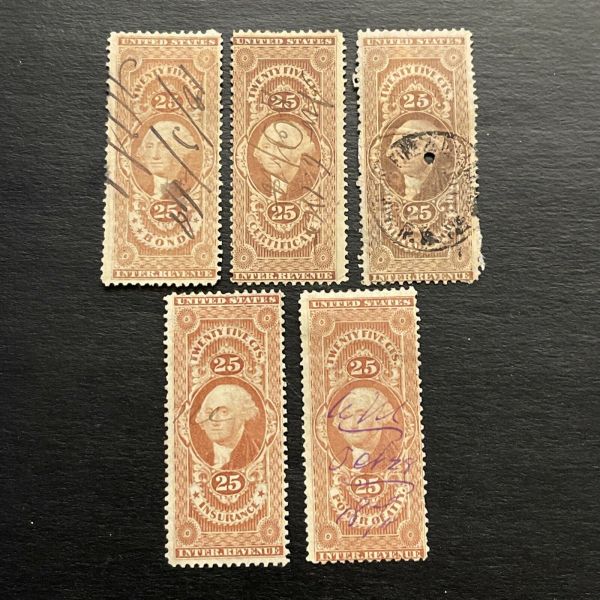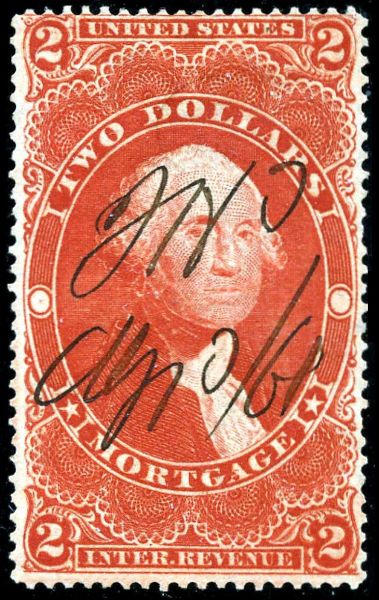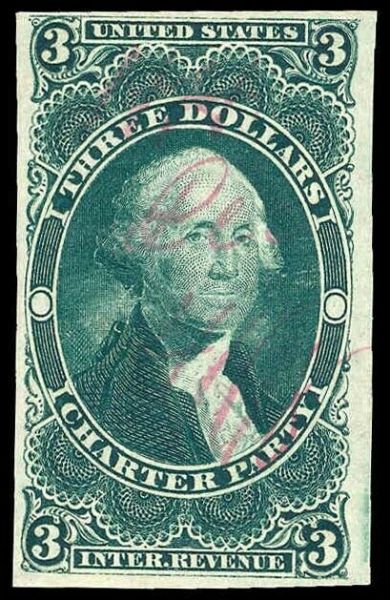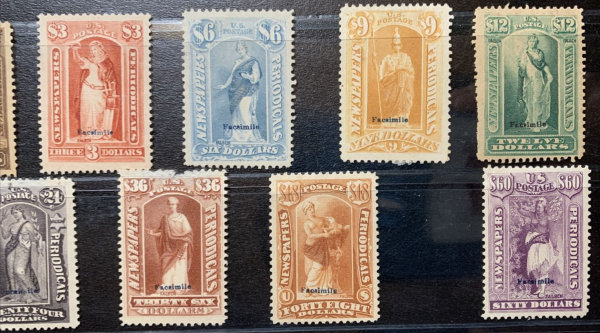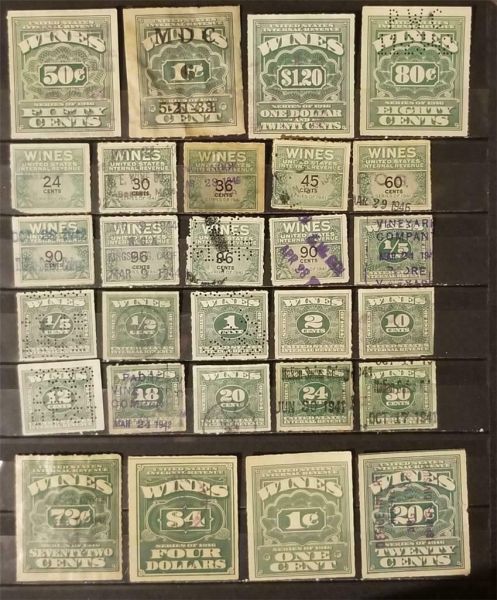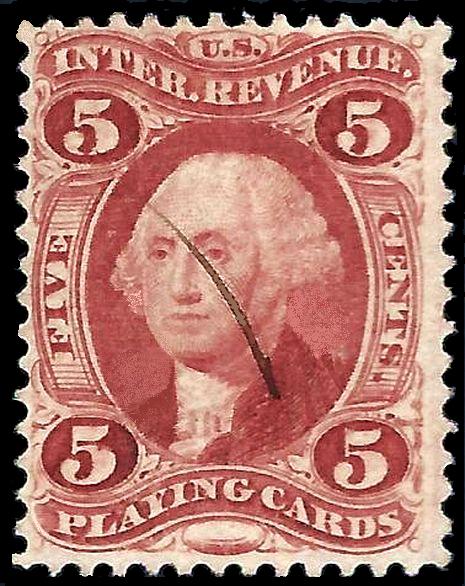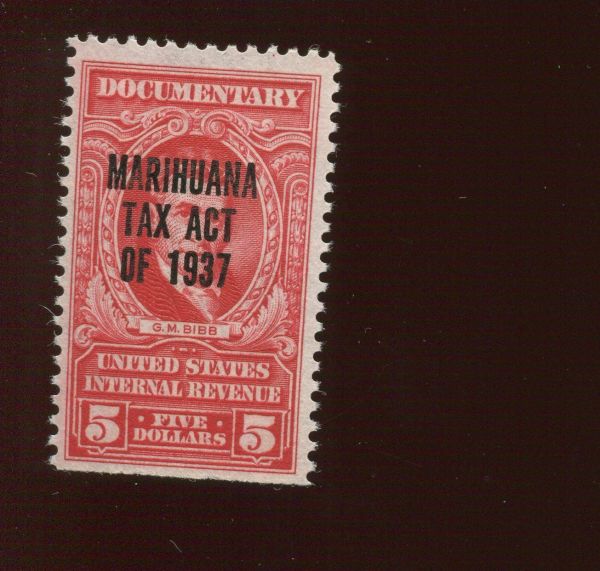Revenue and Documentary Stamps
When I started collecting stamps as a child, I discovered a category of stamps called "revenue stamps," also known as "documentary stamps." The Post Office Department (now the United States Postal Service) started issuing them in 1862, in conjunction with the Federal Government's decision to levy taxes on the newspapers that people bought, on their tobacco, playing cards, and the wine and spirits that they drank. Also, if Americans in 1862 sold stocks and bonds, real estate, or shipped cargo, they had to pay a tax on it. And we modern Americans think we have a rough time with taxes!
Essentially, the Federal Government taxed all these consumer items out of necessity. It needed to raise more revenue to cover its expeditures caused by fighting the Civil War against the rebellious Confederacy in the South. The Federal Government (Union) had to field and equip an army. It also had to purchase thousands of firearms, artillery pieces, supply wagons, and horses, and finance the logistics of moving it all great distances. so it started taxing everything.
If Civil-War era Americans sold real estate, bought stocks and bonds, incorporated a business, wrote checks on their bank accounts, or shipped cargo, they had to pay a tax. To make paying the taxes less distasteful, the revenue stamps bore Gilbert Stuart's handsome portrait of George Washington. Americans may have hated paying the taxes, but they loved George Washington, so they went along it. Look at the variety of revenue sources:
One revenue stamp took me completely by surprise: a tax on Marijuana sales. In 1937, the Federal Government enacted the Marihuana Act, to allow the IRS to collect tax on sales of marijuana. If the nation legalizes marijuana again, it should resurrect the plan to tax it again, and use the revenue to fight another war, this one against cocaine and meth.
Basically the British Government enacted the hated Stamp Act of 1765 to help pare down the expenses of fighting the Seven Years War, also known as the French and Indian War; but the use of revenue stamps by the British government led to the revolutionary slogan, "No taxation without representation!" The Founders convinced the nation to go to war with Britain over the hated Stamp Act.
Then, during the American Civil War of 1861-65, the Federal Government enacted a Stamp Act of its own, again to pare down the expenses of fighting a war. Americans may have hated the idea of paying taxes on periodicals again, but at least they elected the officials who levied them. They also had the Federal Government's Revenue Department to collect them and not disputatious states hemming and hawing, as happened in the Revolutionary War.
History teachers must have had a hell of a time trying to explain why the Federal Government used such a discredited concept as taxing newspapers, playing cards, and contracts, even if the proceeds went to finance the Civil War. The government must have lost some credibility when it continued to use revenue stamps after the surrender of the Confederacy in 1865. The taxation of documents and commerce continued with hardly a blip. Everyone must have realized that the IRS took some risks by doing this. Thank God the Gilbert Stuart painting of Washington looks so handsome!

